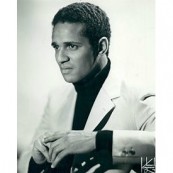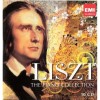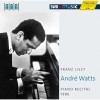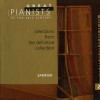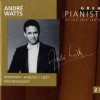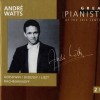| Voice/Instrument: | Pianoforte |
Biography
André Watts (born June 20, 1946) is a classical pianist and professor at the Jacobs School of Music of Indiana University
Born in Nuremberg, Germany, Watts is the son of a Hungarian mother, Maria Alexandra Gusmits, a pianist, and an African American father, Herman Watts, a U.S. Army non-commissioned officer. Watts spent his early childhood in Europe, living mostly near army posts where his father was stationed. He began to study the violin when he was four. By six he decided the piano was his instrument. When André was eight years old, Herman's military assignment brought the family to the United States. They settled in Philadelphia, Pennsylvania. His mother started him with his first lessons. Watts disliked practicing. For encouragement, his mother would tell stories of the great pianist and composer Franz Liszt, making it clear that Liszt practiced faithfully. Watts found inspiration in Liszt, adopting his theatrical playing style. After the divorce of his parents in 1962, Watts remained with his mother, who supported the two, working as a secretary and later as a receptionist.
Watts enrolled at the Philadelphia Musical Academy (now a part of the University of the Arts), where he studied with Genia Robinor, Doris Bawden, and Clement Petrillo, graduating in June 1963. He entered his first competition at nine, with forty other children, for the opportunity to perform with the Philadelphia Orchestra Children's Concerts. Watts won the competition playing a concerto by Joseph Haydn.
At age ten, Watts performed Mendelssohn's G minor concerto with the Robin Hood Dell Orchestra and at fourteen, Franck's Symphonic Variations, again with the Philadelphia Orchestra. At sixteen, he auditioned at Carnegie Recital Hall.
Watts' performance of the Liszt Piano Concerto No. 1 in E-flat at a Young People's Concert was videotaped in December 1962 and nationally televised on CBS on January 15, 1963. The pianist was accompanied by the New York Philharmonic, conducted by Leonard Bernstein. Before the concert, Bernstein introduced Watts to the national television audience, stating that he "flipped" when he first heard Watts play.
On January 1, 1963, Bernstein asked Watts to fill in for the ailing Glenn Gould, the scheduled soloist for the New York Philharmonic's regular subscription concert.[1] Watts again played the Liszt E-flat Concerto. When he had sounded his final cadenza, the whole orchestra joined the audience in a standing ovation. Even the violinists put down their bows and applauded him. Watts' first LP The Exciting Debut of André Watts, was shortly thereafter released on Columbia Masterworks records, and included the Liszt Concerto with Bernstein and the Philharmonic.
Following graduation, Watts enrolled at the Peabody Institute in Baltimore, Maryland where he studied part-time for a Bachelor of Music degree with pianist Leon Fleisher. The following year, he appeared at New York City's Lewisohn Stadium with conductor Seiji Ozawa, and the New York Philharmonic, performing Camille Saint-Saëns' Concerto No. 2 in G minor. In September 1963, he again performed the Liszt concerto at the Hollywood Bowl in Los Angeles. He opened the 1964-65 season of the National Symphony Orchestra in Washington, D.C., again performing the Saint-Saëns concerto. He returned to New York in January 1965 to perform Chopin's Concerto No. 2 in F minor. Watts made his European debut in a London performance with the London Symphony Orchestra in June 1966.
By 1969 he was on a full-scale concert schedule, booked three years in advance. Watts made his Boston debut in 1969 for the Peabody Mason Concert series.[2] He graduated from the Peabody Institute in 1972.
In February 1973, Watts was selected as Musical America's Musician of the Month. Other honors and awards include doctor honoris causa from Albright College and Yale University, the Order of Zaire, and a University of the Arts Medal from the University of the Arts in Philadelphia.
By the mid-1970s, Watts was giving 150 concerts, recitals, and chamber performances per season, performing about eight months out of the year. In 1976, at age thirty, he celebrated his tenth consecutive appearance in the Lincoln Center Great Performance Series at Avery Fisher Hall. The PBS Sunday afternoon telecast was the first solo recital presented on Live from Lincoln Center and the first full-length recital to be aired nationally in prime time.
In November 2002, Watts suffered a subdural hematoma. He quickly recovered and resumed a full concert schedule.[3]
In 2004 Watts joined the faculty at Indiana University, where he holds the Jack I. and Dora B. Hamlin Endowed Chair in Music.





